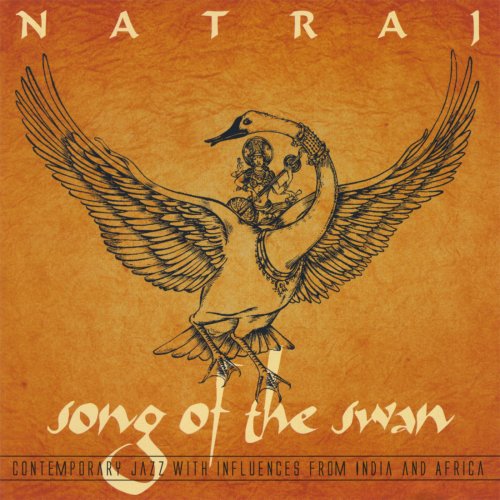Zurich Ensemble - Scheherazade (2014)
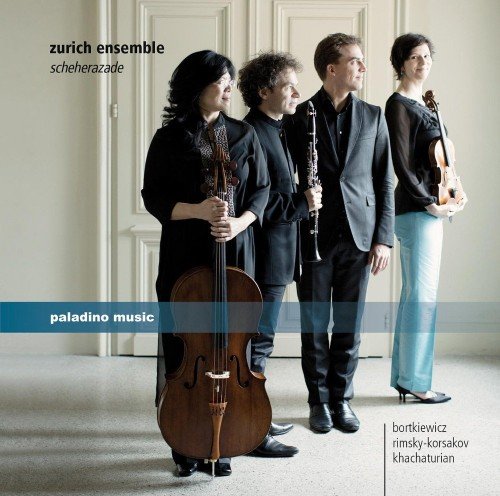
Artist: Zurich Ensemble
Title: Scheherazade
Year Of Release: 2014
Label: Naxos
Genre: Classical
Quality: FLAC (image+.cue,scans)
Total Time: 01:12:21
Total Size: 319 Mb
WebSite: Album Preview
Tracklist: Title: Scheherazade
Year Of Release: 2014
Label: Naxos
Genre: Classical
Quality: FLAC (image+.cue,scans)
Total Time: 01:12:21
Total Size: 319 Mb
WebSite: Album Preview
Sergei Bortkiewicz (1877-1952)
Thousand and One Nights, oriental ballet suite, op. 37, 1926 (arr. Benjamin Engeli) [10:54]
Caliph Harun-01 Al Rashid 1:52
02 Dance of the three sisters 2:26
03 Enchanted Castle 1:50
04 Fairy tale about a poor fisherman 3:01
05 1:45 Bacchanalia
Nikolai Rimsky-Korsakov (1844 -1908)
Scheherazade, Symphonic Suite, op. 35, 1888 (arr. Florian Noack and Benjamin Engeli) [43:31]
06 I. Prologue. Sea and Sinbad's Ship 9:58
07 II. Story of Tsarevich Callander 11:26
08 III. Young prince and princess 9:08
09 IV. Baghdad festival. Sea 12:59
Aram Khachaturian (1903-1978)
Trio for Clarinet, Violin and Piano, 1932 [16:06]
10 I. Andante von dolore, con molt'espressione 04:47
11 II. Allegro 04:18
12 III. Moderato 07:01
Performers:
Zurich Ensemble
Fabio Di Casola, clarinet
Kamilla Schatz, violin
Pi-Chin Chien, cello
Benjamin Engeli, piano
The members of the Zurich Ensemble are Fabio di Càsola (clarinet), Kamilla Schatz (violin), Pi-Chin Chien (cello), and Benjamin Engeli (piano). The ensemble’s web site doesn’t indicate when it was founded or even whether this is its first CD. (This is, however, the only CD listed on ArkivMusic’s site, so draw your own conclusions.) Be that as it may, this is a thoroughly delightful CD, headlined by a clever arrangement of Rimsky-Korsakov’s enduring warhorse, and complemented by the less familiar works by Khachaturian and Sergei Bortkiewicz. The latter is very appealing ear candy, published in 1926, although there is little about it to suggest so late a date. According to the booklet note, this work started out as a ballet suite in 10 movements, and the composer created versions for salon orchestra and for piano solo. I suppose one could argue that its Orientalisms are clichéd, but one could make the same argument about Rimsky-Korsakov’s work—and when the music is so enjoyable, why bother? The titles of Bortkiewicz’s five movements are “The Kalif Haroun-al Raschid,” “Dance of the three sisters,” “The bewitched castle,” “The tale of the poor fisherman,” and “Bacchanale.” It looks like Bortkiewicz might be a composer worth getting to know better, on the basis of this short work.
I’ve heard all kinds of arrangements of Scheherazade (I also review a new recording of the composer’s own version for piano duet in this issue) and some work better than others. It’s a shame, perhaps, to remove some of the spectacle from this score—it can be like eating a chicken salad sandwich without the mayonnaise. Here, although the Zurich Ensemble holds the mayo, so to speak, they replace it with charm, and charm is not a quality one often associates with this music. I can imagine the Zurich Ensemble performing on one of those musical cruises, and making a hit with the passengers one night after dinner, playing this cozy and yet exciting arrangement of music that, for many, has become almost too familiar. Violinist Kamilla Schatz, in the “title role,” doesn’t make the flashy impression that a concertmaster makes in a good orchestral performance, but that’s because she hardly ever stops playing; flash has been replaced with intimacy and suaveness.
Khachaturian’s Trio is a youthful work, dating from 1932, while he was still a student at the Moscow Conservatory. It reflects his exposure, from a young age, to Armenian, Azerbaijani, and Georgian indigenous music. The first movement is heavy-hearted gypsy music, and the faster second movement is similar in style. The third is a set of variations on a theme that could have come from the composer’s Gayne ballet. This is an attractive work, innocent of the bombastic tendencies that marred some of his later music.
These are terrific performances, characterized by their grace and style, and by the way in which the musicians balance individuality and blend. The program’s theme is imaginative, and also intelligent. It would make a great evening in the recital hall (or on a cruise!), but with a CD, that evening can be repeated over and over, of course. I’ve already done so! It’s always a pleasure to write a CD review when the subject of the review is so pleasure-giving itself.
I’ve heard all kinds of arrangements of Scheherazade (I also review a new recording of the composer’s own version for piano duet in this issue) and some work better than others. It’s a shame, perhaps, to remove some of the spectacle from this score—it can be like eating a chicken salad sandwich without the mayonnaise. Here, although the Zurich Ensemble holds the mayo, so to speak, they replace it with charm, and charm is not a quality one often associates with this music. I can imagine the Zurich Ensemble performing on one of those musical cruises, and making a hit with the passengers one night after dinner, playing this cozy and yet exciting arrangement of music that, for many, has become almost too familiar. Violinist Kamilla Schatz, in the “title role,” doesn’t make the flashy impression that a concertmaster makes in a good orchestral performance, but that’s because she hardly ever stops playing; flash has been replaced with intimacy and suaveness.
Khachaturian’s Trio is a youthful work, dating from 1932, while he was still a student at the Moscow Conservatory. It reflects his exposure, from a young age, to Armenian, Azerbaijani, and Georgian indigenous music. The first movement is heavy-hearted gypsy music, and the faster second movement is similar in style. The third is a set of variations on a theme that could have come from the composer’s Gayne ballet. This is an attractive work, innocent of the bombastic tendencies that marred some of his later music.
These are terrific performances, characterized by their grace and style, and by the way in which the musicians balance individuality and blend. The program’s theme is imaginative, and also intelligent. It would make a great evening in the recital hall (or on a cruise!), but with a CD, that evening can be repeated over and over, of course. I’ve already done so! It’s always a pleasure to write a CD review when the subject of the review is so pleasure-giving itself.
DOWNLOAD FROM ISRA.CLOUD
Rimsky-Korsakov, Bortkiewicz, Khatchaturian - Zurich Ensemble.rar - 324.3 MB
Rimsky-Korsakov, Bortkiewicz, Khatchaturian - Zurich Ensemble.rar - 324.3 MB
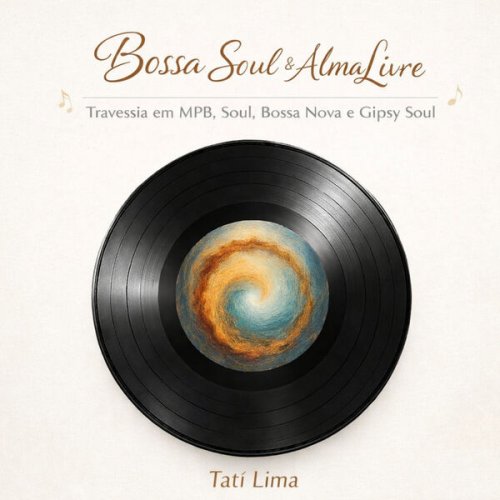

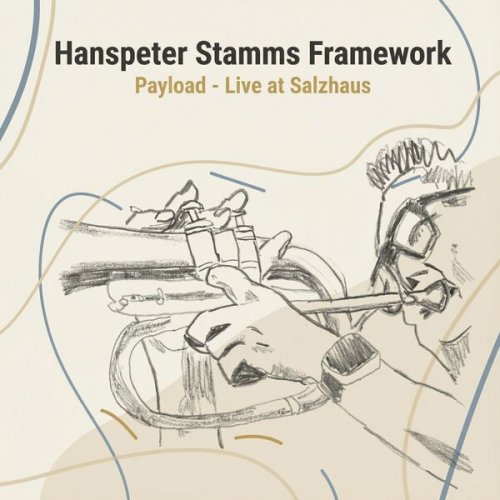


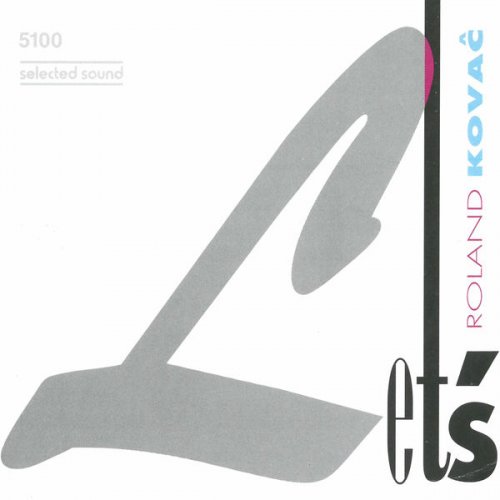
![Nils Wülker - Zuversicht (2026) [Hi-Res] Nils Wülker - Zuversicht (2026) [Hi-Res]](https://www.dibpic.com/uploads/posts/2026-01/1769611944_ahp1eqi4eu7na_600.jpg)
![Sepalot - closer (2026) [Hi-Res] Sepalot - closer (2026) [Hi-Res]](https://img.israbox.com/img/2026-01/30/tbtrw8vul7fg4oun5l1msn4co.jpg)
